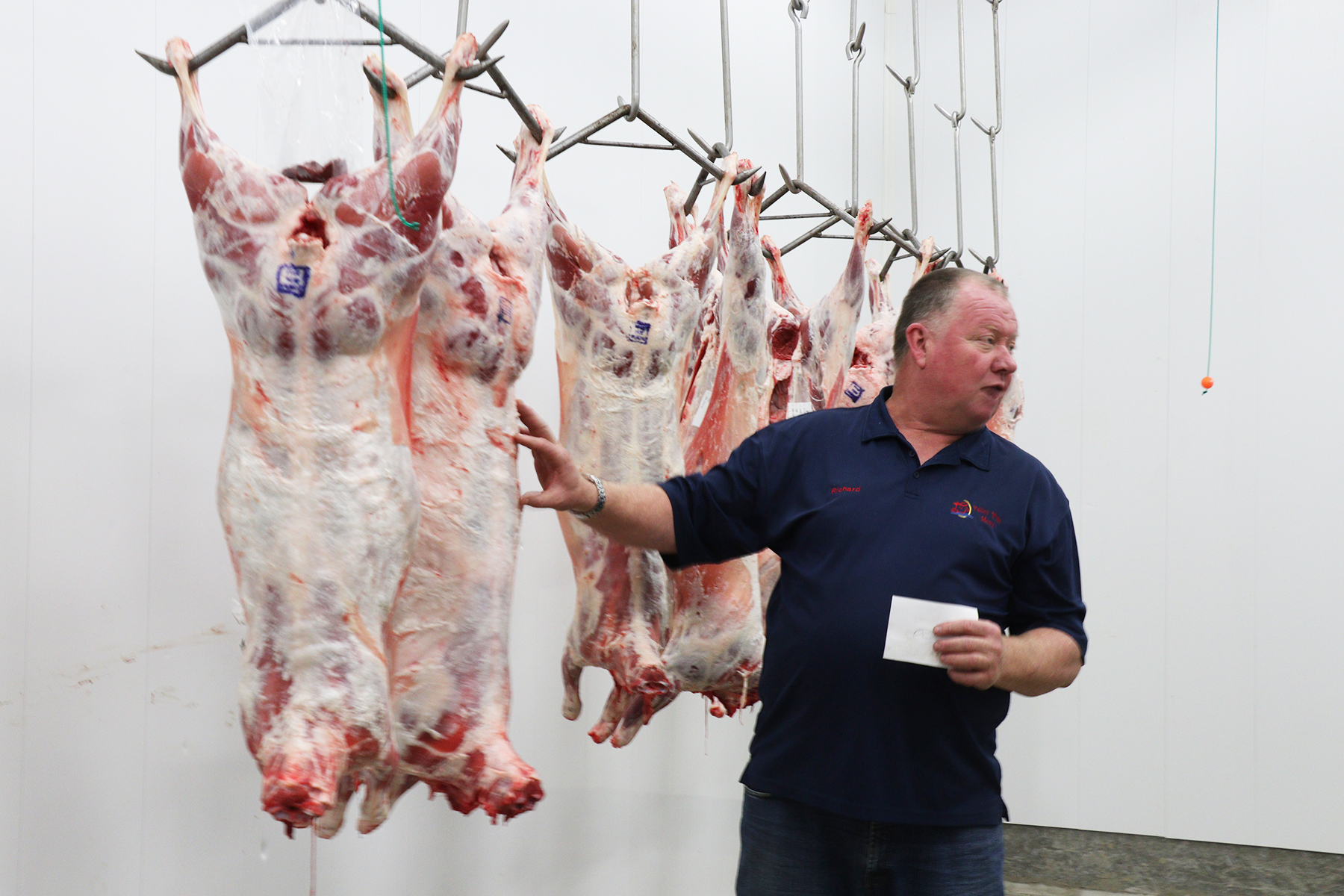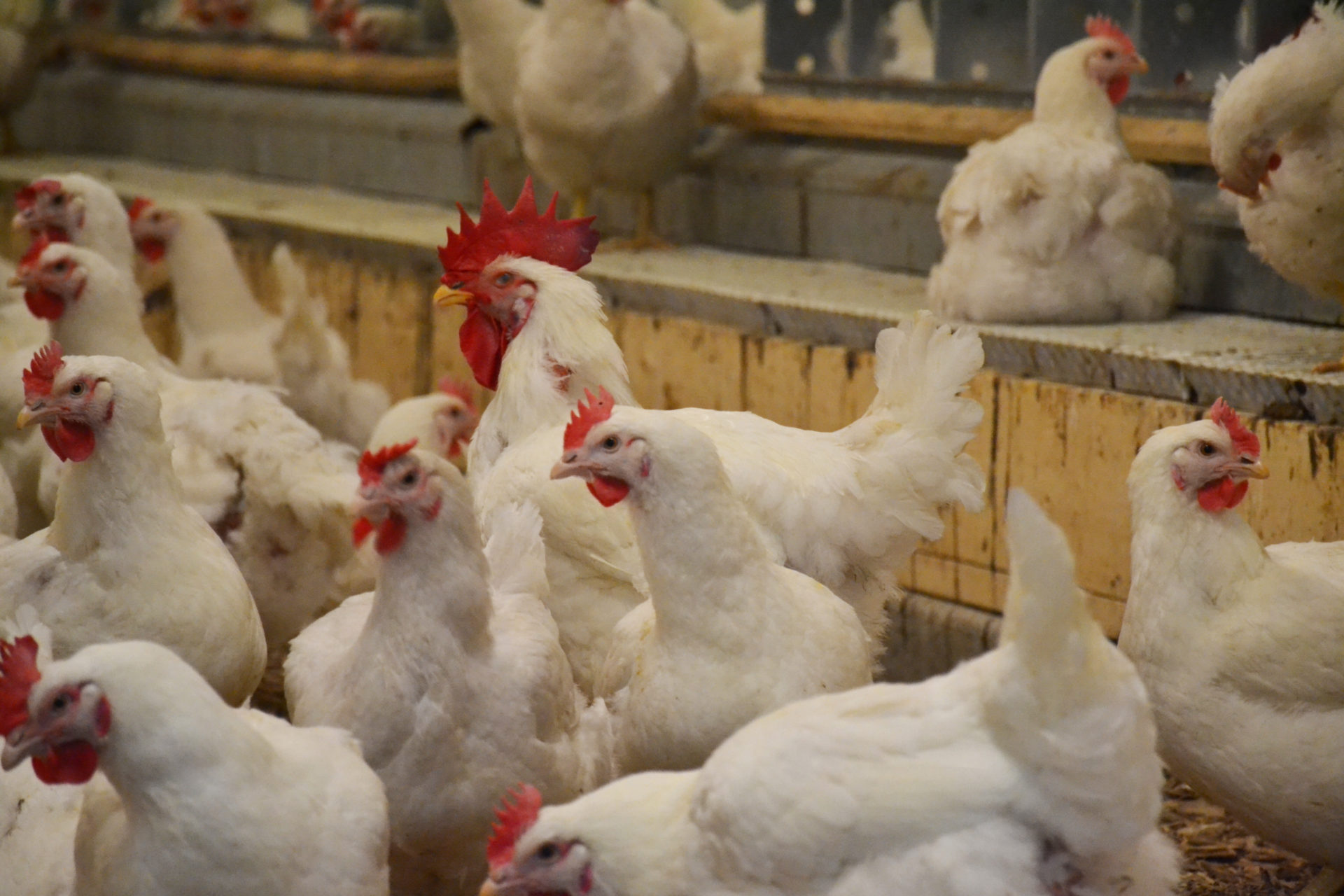MERRITT – First it dodged half the province by cancelling a week of scheduled meetings in June and now it’s squandering the chance to show leadership and help the BC meat processing industry move forward.
The legislature’s Select Standing Committee on Agriculture, Fish and Food has delivered its final report, making no definitive recommendations on the key issues it was asked to address.
“This is a very safe report,” says Julia Smith of Blue Sky Ranch in Merritt and president of the Small-Scale Meat Producers Association.
The committee’s 21 recommendations use bland wording, she said, such as “encourage,” “work with” and “investigate options.”
“There are not a lot of recommendations that can be implemented without more time-consuming, resource-intensive processes,” Smith says. “For all of the time and effort that has been spent across the province, this report doesn’t put us much further ahead.”
The lacklustre report follows a decision the nine-member committee made to cancel an entire week of meetings scheduled in June and hold just three days of hearings.
The move ruled out face-to-face meetings with stakeholders in the Peace, Prince George, southern Vancouver Island and the entire Lower Mainland. Ultimately, the committee based its recommendations on 50 oral presentations as well as 36 written submissions and 74 online survey responses, many of which offered well-considered and thorough perspectives.
“I submitted 27 written pages of recommendations that were all reviewed by my board of directors,” notes Nova Woodbury of the BC Association of Abattoirs. “For each item that the presentation spoke to, we gave specific strategies on how the issue might be solved.”
The committee also had the benefit of the 96-page report on D & E class licensing that summarized the findings of a targeted survey conducted in May, just prior to the committee’s own hearings.
While the committee’s failure to make specific recommendations frustrates producer groups, committee chair Ronna-Rae Leonard explains it this way.
“As a committee we can make recommendations; we don’t have the power to make change,” she says. “You have an all-party committee that is trying to consolidate all of the comments and frame it in a way that will move the agenda forward.”
“In the report you have a lot of recommendations that talk about partnership collaboration and discussion,” adds deputy chair Jackie Tegart. “What we wanted to do as a committee was to encourage collaboration with industry and indicate to the Ministry of Agriculture that there are concerns and to encourage them to talk with people in the field, in regards to … the best way to deal with [concerns].”
That’s the kind of lengthy process Smith hoped could be avoided.
“We just don’t know if the small-scale meat industry can wait much longer,” she says, noting that one of her association’s members had to take her turkeys to Vancouver Island for processing because there was no capacity in the Lower Mainland.
Woodbury sees the same urgency. Her counterparts in Alberta and Ontario can’t believe that BC allows the sale of uninspected meat in certain areas as a way to get around the shortage of inspectors. Other facilities have had to cancel bookings because, she says, “there are not enough provincial inspectors to work with them.”
The report does little to address processing capacity issues. It doesn’t recommend increasing total animal units at D & E plants, or supporting the completion of more A & B plants, including D &D plants that are looking to upgrade.
Indeed, the report makes only two specific actionable recommendations: reducing travel times to one hour between facilities and seeking ways to make mobile slaughter capacity accessible to small producers.
“That is a possible way to alleviate some of the capacity issues,” says Smith. “But right now the requirement to have a permanent kill floor and direct-source potable water make it expensive. Why can’t water come in on the mobile plant?”
Woodbury notes that the report does speak to the multiple staffing and training issues across the province.
“The problem is, there are no specifics around funding,” says Woodbury. “We know that we need more training, but will the money come from the Ministry of Agriculture or Advanced Education?”
Woodbury and Smith both say they’re urging government to take specific actions to help processors. Leonard, for her part, says agriculture minister Lana Popham is taking the committee’s report seriously.
“[She] took a look at the report fairly quickly and is encouraged by it,” says Leonard. “So I expect that there will be actions taken.”


 Traceability regulations expected next year
Traceability regulations expected next year